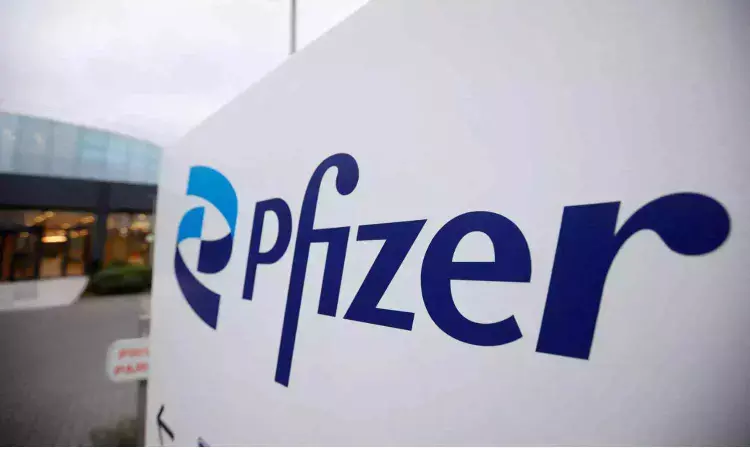- Home
- Medical news & Guidelines
- Anesthesiology
- Cardiology and CTVS
- Critical Care
- Dentistry
- Dermatology
- Diabetes and Endocrinology
- ENT
- Gastroenterology
- Medicine
- Nephrology
- Neurology
- Obstretics-Gynaecology
- Oncology
- Ophthalmology
- Orthopaedics
- Pediatrics-Neonatology
- Psychiatry
- Pulmonology
- Radiology
- Surgery
- Urology
- Laboratory Medicine
- Diet
- Nursing
- Paramedical
- Physiotherapy
- Health news
- Fact Check
- Bone Health Fact Check
- Brain Health Fact Check
- Cancer Related Fact Check
- Child Care Fact Check
- Dental and oral health fact check
- Diabetes and metabolic health fact check
- Diet and Nutrition Fact Check
- Eye and ENT Care Fact Check
- Fitness fact check
- Gut health fact check
- Heart health fact check
- Kidney health fact check
- Medical education fact check
- Men's health fact check
- Respiratory fact check
- Skin and hair care fact check
- Vaccine and Immunization fact check
- Women's health fact check
- AYUSH
- State News
- Andaman and Nicobar Islands
- Andhra Pradesh
- Arunachal Pradesh
- Assam
- Bihar
- Chandigarh
- Chattisgarh
- Dadra and Nagar Haveli
- Daman and Diu
- Delhi
- Goa
- Gujarat
- Haryana
- Himachal Pradesh
- Jammu & Kashmir
- Jharkhand
- Karnataka
- Kerala
- Ladakh
- Lakshadweep
- Madhya Pradesh
- Maharashtra
- Manipur
- Meghalaya
- Mizoram
- Nagaland
- Odisha
- Puducherry
- Punjab
- Rajasthan
- Sikkim
- Tamil Nadu
- Telangana
- Tripura
- Uttar Pradesh
- Uttrakhand
- West Bengal
- Medical Education
- Industry
Pfizer Duchenne gene therapy fails to meet primary end point in Phase 3 CIFFREO trial
 Pfizer
PfizerNew York: Pfizer Inc. has announced that CIFFREO, a Phase 3 global, multicenter, randomized, double-blind, placebo-controlled study evaluating the investigational mini-dystrophin gene therapy, fordadistrogene movaparvovec, in ambulatory patients with Duchenne muscular dystrophy (DMD) did not meet its primary endpoint of improvement in motor function among boys 4 to 7 years of age treated with the gene therapy compared to placebo.
The primary endpoint in the final analysis was assessed by change in the North Star Ambulatory Assessment (NSAA) at one year after treatment. Key secondary endpoints, including 10-meter run/walk velocity and time to rise from floor velocity, also did not show a significant difference between participants treated with fordadistrogene movaparvovec and placebo.
The overall safety profile of fordadistrogene movaparvovec in the CIFFREO trial was manageable, with mostly mild to moderate adverse events, and treatment-related serious adverse events generally responding to clinical management.
“We are extremely disappointed that these results did not demonstrate the relative improvement in motor function that we had hoped. We plan to share more detailed results from the study at upcoming medical and patient advocacy meetings, with the goal of ensuring that learnings from this trial can help improve future clinical research and development of treatment options that can improve care for boys living with Duchenne muscular dystrophy,” said Dan Levy, MD, PhD, Development Head for Duchenne muscular dystrophy, Pfizer. “We are grateful for the boys, their families, advocates, and the investigators who have participated in this research and the continuing effort to advance treatment options for this debilitating disease.”
Pfizer will continue to closely monitor all participants enrolled in the study and is evaluating appropriate next steps for the program.
Duchenne muscular dystrophy (DMD) is a serious genetic disease characterized by progressive muscle degeneration and weakness. Symptoms usually manifest in early childhood between the ages of 3 and 5. The disease primarily affects boys. Muscle weakness can begin as early as age 3, first affecting the muscles of the hips, pelvic area, thighs, and shoulders, and later the skeletal (voluntary) muscles in the arms, legs, and trunk. By their early teens, patients typically lose their ability to walk and the heart and respiratory muscles are also affected, ultimately resulting in premature death. DMD is the most common form of muscular dystrophy worldwide with an incidence of 1 in every 5,000 live male births.
Ruchika Sharma joined Medical Dialogue as an Correspondent for the Business Section in 2019. She covers all the updates in the Pharmaceutical field, Policy, Insurance, Business Healthcare, Medical News, Health News, Pharma News, Healthcare and Investment. She has completed her B.Com from Delhi University and then pursued postgraduation in M.Com. She can be contacted at editorial@medicaldialogues.in Contact no. 011-43720751
Dr Kamal Kant Kohli-MBBS, DTCD- a chest specialist with more than 30 years of practice and a flair for writing clinical articles, Dr Kamal Kant Kohli joined Medical Dialogues as a Chief Editor of Medical News. Besides writing articles, as an editor, he proofreads and verifies all the medical content published on Medical Dialogues including those coming from journals, studies,medical conferences,guidelines etc. Email: drkohli@medicaldialogues.in. Contact no. 011-43720751


